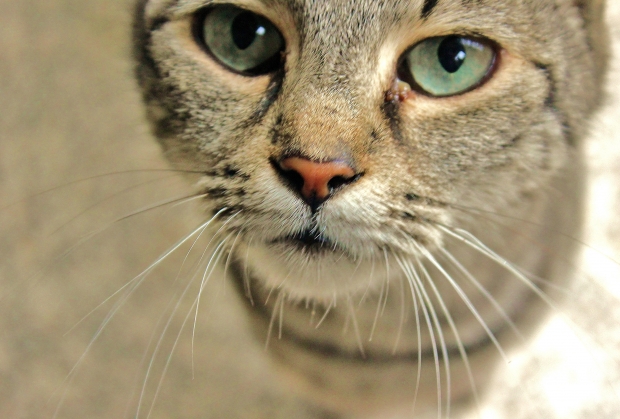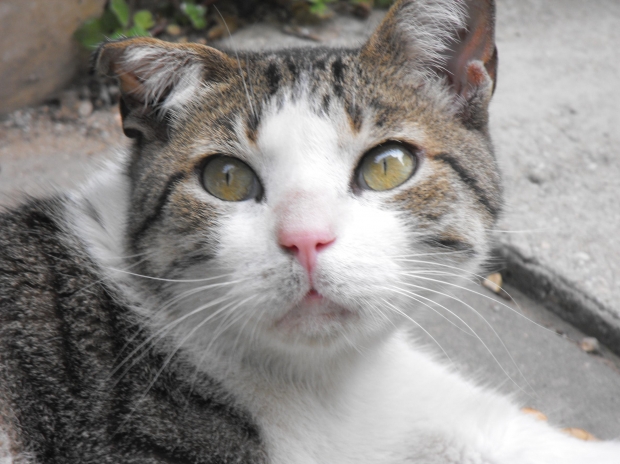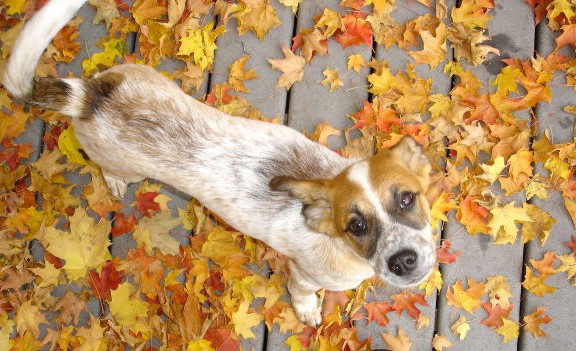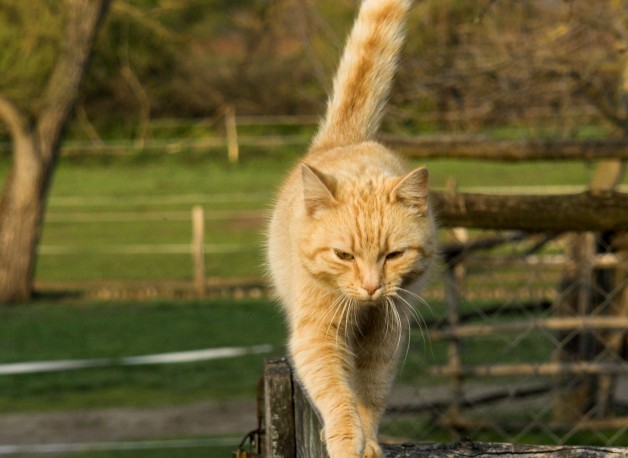 Winter is the season of cold and for some areas, numbing wetness. Make sure your pets stay safe and warm by following these simple guidelines.
Winter is the season of cold and for some areas, numbing wetness. Make sure your pets stay safe and warm by following these simple guidelines.
Tag: Cats
Planning a Trip with Pets Who Get Car Sick
 Many people have experienced “that look” with their pets. The one where it’s like he’s trying to say, “What? You’re leaving me?!?” No matter how many times you try to explain it to him that he gets sick in the car and he’ll be miserable if you take him along, he doesn’t understand what you’re saying. All he knows is that you’re going on a vacation, and he’s not.
Many people have experienced “that look” with their pets. The one where it’s like he’s trying to say, “What? You’re leaving me?!?” No matter how many times you try to explain it to him that he gets sick in the car and he’ll be miserable if you take him along, he doesn’t understand what you’re saying. All he knows is that you’re going on a vacation, and he’s not.
Having a dog who gets car sick when traveling can definitely present its challenges, but it doesn’t mean that you can’t all enjoy the holiday vacation together! Here are a few helpful tips for traveling with a pet who gets car sick.
Cold Weather Activities for Pets
 Does this cold winter weather of you and your pet feeling a little antsy? If you’re used to spending time outdoors, then chances are you’re both probably starting to feel a little restless by now.
Does this cold winter weather of you and your pet feeling a little antsy? If you’re used to spending time outdoors, then chances are you’re both probably starting to feel a little restless by now.
Making an effort for both you and your pet to stay indoors this winter is great for the mind and body. Your pet will enjoy and appreciate the chance to play and be able to stay active and healthy at the same time. Here are a few ideas to get you started.
Fall Weight Management Tips for Your Pet
 It is officially Fall! This means shorter days, changing leaves, a crisp breeze, football, holidays and food. And with food comes the seasonal weight gain. We seem to find more and more excuses to stay inside our homes as the temperature drops. Add this to the holiday celebrations with the natural tendency to crave comfort food for the colder months, and you have the perfect combination for seasonal weight gain.
It is officially Fall! This means shorter days, changing leaves, a crisp breeze, football, holidays and food. And with food comes the seasonal weight gain. We seem to find more and more excuses to stay inside our homes as the temperature drops. Add this to the holiday celebrations with the natural tendency to crave comfort food for the colder months, and you have the perfect combination for seasonal weight gain.
Overweight pets face many of the same health issues and concerns as people, including: heart disease, type 2 diabetes, bone and joint problems, various forms of cancers, and a shortened life expectancy, just to name a few. Fortunately, with a few simple modifications, you and your pet can avoid the seasonal weight gain.
Fall Hazards for Pets
Feline Rabies Treatment and Management
 Feline Rabies is an inflammatory infection that specifically affects the gray matter of the cat’s brain and its central nervous system (CNS). The primary way the rabies virus is transmitted to cats in the United States is through a bite from a disease carrier: foxes, raccoons, skunks, and bats. Infectious virus particles are retained in a rabid animal’s salivary glands to better disseminate the virus through their saliva.
Feline Rabies is an inflammatory infection that specifically affects the gray matter of the cat’s brain and its central nervous system (CNS). The primary way the rabies virus is transmitted to cats in the United States is through a bite from a disease carrier: foxes, raccoons, skunks, and bats. Infectious virus particles are retained in a rabid animal’s salivary glands to better disseminate the virus through their saliva.
Once the virus enters the cat’s body, it replicates in the cells of the muscles and then spreads to the closest nerve fibers, including all peripheral, sensory and motor nerves, traveling from there to the CNS via fluid within the nerves. The virus can take up to a month to develop, but once the symptoms have begun, the virus progresses rapidly.
Intestinal Parasite Screenings for Cats
 Parasites often go unnoticed because they are “silent”. Intestinal parasites that are more common have adapted so well to their hosts (your cat), that they are living in balance and cause no observational health issues. This can always change though, because when the parasites become too numerous the pet’s health is affected. The best approach, because of their silent nature, is to try to keep pets completely free of them before the balance becomes disturbed.
Parasites often go unnoticed because they are “silent”. Intestinal parasites that are more common have adapted so well to their hosts (your cat), that they are living in balance and cause no observational health issues. This can always change though, because when the parasites become too numerous the pet’s health is affected. The best approach, because of their silent nature, is to try to keep pets completely free of them before the balance becomes disturbed.
The Chemistry Panel in Dogs and Cats
Have you ever wondered what the normal values for the blood chemistry elements for dogs and cats are? Well, “normal” is actually quite relative. Every veterinary diagnostic lab and “in clinic” laboratory equipment will have its own set of calibrated values that are considered “normal”. So as to be expected, the “normal values” will vary.
Heartworm Disease Awareness
Heartworm disease is a serious and likely fatal disease among pets in the United States and many other parts of the world. It is caused by worms that live in the heart, lungs and associated blood vessels of affected pets. These foot-long worms can cause severe lung disease, heart disease and damage to other organs. This disease is most commonly known in dogs and cats. It can also live in many mammal species including wolves, coyotes, foxes, sea lions and, although rarely, in humans. With wild animals like coyotes and foxes now living closer in proximity to many cities, they are thought to be important carriers of heartworm disease.
H1N1 Influenza in Felines
The H1N1 variation of the flu virus, previously referred to as “swine flu”, is infectious to felines and in addition to individuals. Moreover, this virus is additionally known to contaminate dogs, pigs, and ferrets. In spite of the fact that the spread of this specific flu infection is no more thought to be a pandemic, it is still spreading around the world.




















